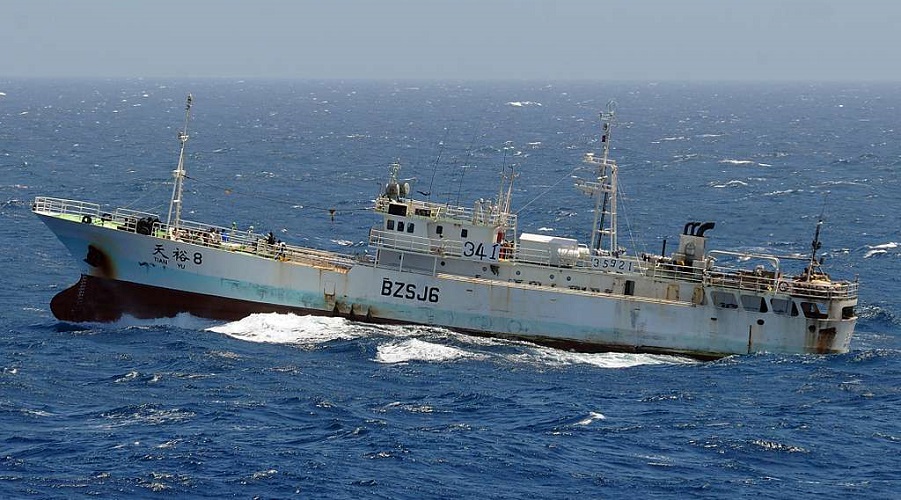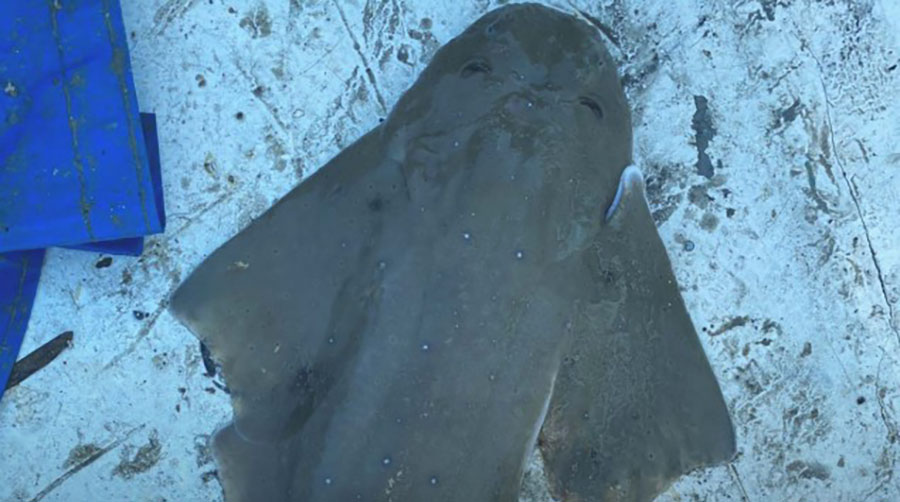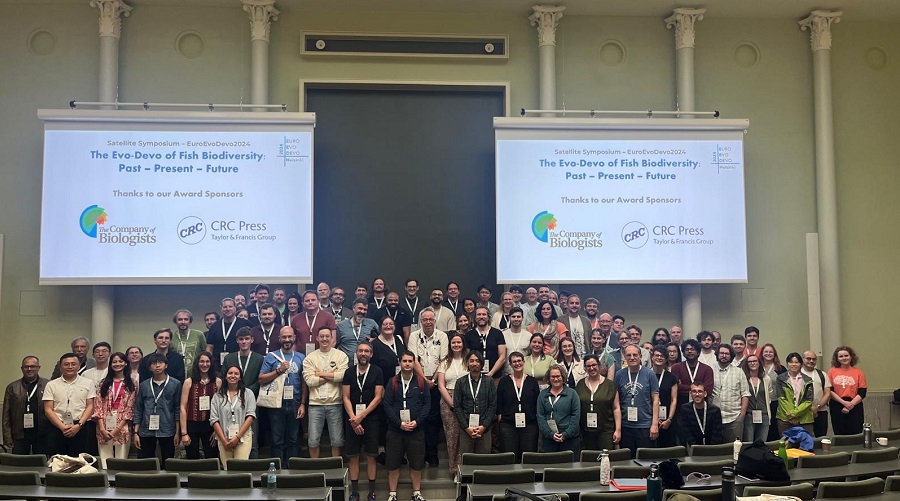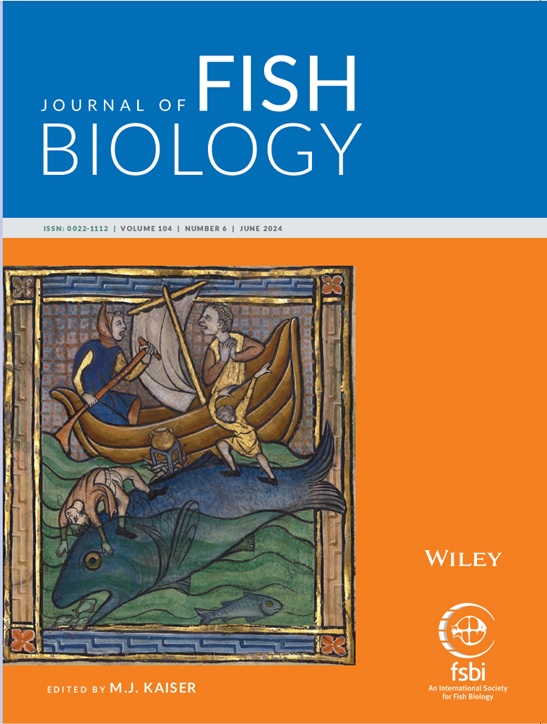Three potential Critical Angel Shark Areas or CASAs have been identified in the Eastern Mediterranean, specifically in Türkiye’s Fethiye Bay and Antalya Bay, which are part of the Turkish Riviera, and the Çanakkale or Dardanelles Strait, in the northwestern part of the country.
Daniel Pauly presents Gill Oxygen Limitation Theory at 2024 EuroEvoDevo
The Sea Around Us principal investigator, Dr. Daniel Pauly, presented his Gill Oxygen Limitation Theory (GOLT) at the 9th Conference of the European Society for Evolutionary Developmental Biology held in Helsinki on June 24-28, 2024.
Paper on gigantism makes cover of Journal of Fish Biology
A recent paper authored by the Sea Around Us’ PI, Dr. Daniel Pauly, research assistant, Elaine Chu, and Dr. Johannes Müller from Leiden University, has made the cover of the June print issue of the Journal of Fish Biology, where it was introduced by a brief essay in the ‘Between the Covers’ section. The image that illustrates it is that of a large mythical sea creature known as an Aspidochelone, which appeared in a French bestiary around 1270 A.D.
Industrial fleets operating in the Indian Ocean turn off monitoring systems, fail reporting obligations

Chinese fishing vessel FV Tian Yu 8 in the Indian Ocean. Photo by the U.S. Navy, Picryl.
Industrial fleets from top fishing countries operating in the Indian Ocean and targeting export-market species such as tuna and squid are likely to disable monitoring systems to fish more than allowed and evade authorities, new research has found.
Daniel Pauly receives 2024 Sartún Award

Daniel Pauly receiving the 2024 Sartún Award at the Meeting of the Seas. Photo courtesy of Encuentro de los Mares.
During the 2024 Meeting of the Seas held in Tenerife, Spain, the Sea Around Us principal investigator, Dr. Daniel Pauly, was granted the Sartún Award, in recognition of his +40-year career working for the protection of the global ocean.




